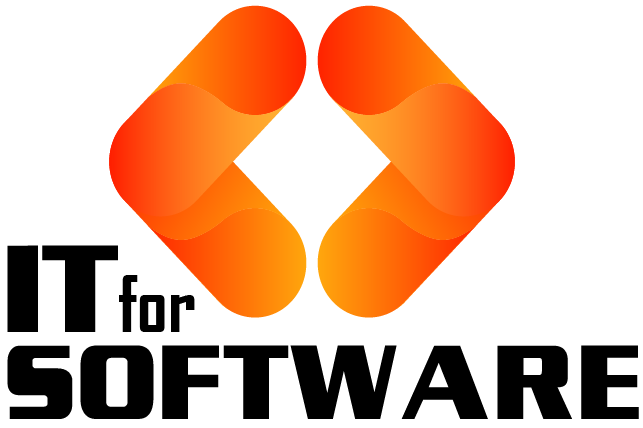
Bitcoin transaction accelerator is an off-chain service that accepts extra charges to intentionally include a specific transaction in the next Bitcoin block so that it’ll get enough confirmations.
And there’s no doubt that these transaction accelerators are operated by Bitcoin miners only, whose only intention is to get the block reward and higher block mining charges.
While a number of people started to use Bitcoin, the block chain reaches the limit and results in a crowded Bit coin community. Hence, few transactions are deferred anticipating confirmation. To speed up the approach, those Bitcoin customers are required to pay higher miner costs and/or use SegWit transactions.
3 Best Bitcoin Transaction Accelerators
ViaBTC’s transaction – ViaBTC’s transactions accelerator is a free service for the Bitcoin community to accelerate the BTC transactions. It additionally runs paid services for accelerating Bitcoin transactions in case of emergencies, experiments or real low fee problems. There may be no requirement for sign-up for the use of this accelerator. And in order to use this accelerator you require filing any TXID of the deferred transactions that at the least consist of a rate of 0.0001BTC/KB.
BTC.com – BTC.com gives the service of Bitcoin transaction acceleration in cooperation with other mining pools. The fee structure was quite high in December 2017 but in general, the fee revolves around $5-$10.Through this service, one can increase the probability of confirming their transaction within one hour to 75% and among 4 hours to 98%.
Bitcoin Afterburner – Bitcoin Afterburner is a product by the same organization that created the Sumourai wallet.
Bitcoin Afterburner is an open-source wallet utility designed to get stuck unconfirmed Bitcoin transactions confirmed as quickly as possible. Afterburner is simply like a first-aid kit for a sick transaction.
Bitcoin Afterburner isn’t a pocket but it’s a Bitcoin transaction accelerator tool that quickens Bitcoin transactions at a flat fee of $5.99 + miner charge which gets introduced to child pay for parent (CPFP) transactions.
The app is available for Android devices and is accessible with all BIP 44 & BIP 39 wallets.
Bitcoin transactions confirmations
Bitcoin transactions are bundled into blocks. These blocks are inserted by Bitcoin miners into the Bitcoin ledger of transactions, referred to as the blockchain.
If your transaction was within a successfully mined block, you may see it receive one the confirmation. Each block mined thereafter will award your transaction with additional confirmation. It’s recommended to wait for at least 6 confirmations before deeming a transaction is irreversible.
Roughly every 10 minutes, a new block is formed and added to the blockchain through the mining method. This block verifies and records any new transactions. The transactions are then have been confirmed by the Bitcoin network.
Bitcoin transactions are bundled into blocks that are what make up the blockchain (a chain of blocks). When your transaction enters a valid block, it receives its first confirmation. Each block that is mined after that adds confirmation to it, making it harder to reverse.
How to Check Bitcoin transactions Confirmations
Once you make a transaction, your wallet must provide you an option to view the transaction on a block explorer or give you the transaction ID.
A transaction ID looks like this: 7a43510802e113b7059851ef0a8a5c3625db37541861dd982f56253b2d5c4ff9.
To check the number of confirmations for a transaction, simply paste the ID into a block explorer like blockchain.info:
Bitcoin transaction confirmation check
Users can view a bitcoin transaction, users can visit the following link:
https://www.blockchain.com/explorer and use the search bar to learn more about a specific bit of coin address, transaction hash, or block number by coming into the search field.
Is Bitcoin transaction traceable?
All Bitcoin transactions are public, traceable, and permanently stored within the Bitcoin network. Bitcoin addresses are the only info used to define where bitcoins are allocated and where they’re sent. … Although, once addresses are used, they become tainted by the history of all transactions they’re involved with.
How long do Bitcoin Transactions Take
Although, long it takes to transfer Bitcoin between wallets varies from transaction to transaction.
When you make a Bitcoin transaction, it requires to be approved by the network before it can be completed. The Bitcoin community has set a standard of 6 confirmations that a transfer requires before you can consider it complete.
A Bitcoin transaction usually needs 6 confirmations from miners before it’s processed. The average time it takes to mine a block is ten minutes, so you’d expect a transaction to take around an hour on average.
Although, the recent popularity boom of Bitcoin has caused congestion on the network. The average time for one confirmation has recently ranged anywhere from 30 minutes to over 16 hours in ultimate cases.
What determines the Bitcoin transaction times?
The 2 main factors influencing the transaction time are:
- The amount of network activity
- Transaction fees
Bitcoin Transaction not confirmed yet
Every bit of coin transaction that is sent flows into what is known as the Mempool (short for memory pool) before it can be often confirmed by miners. When there is a dramatic spike in dealing activity, the Mempool will become full as a result so many transactions are waiting to be included in the next block.
Bitcoin users across the network might notice their transactions sit as unconfirmed or unfinished for an extended period, and this may cause users to be concerned about the status of their funds.
In most cases, your transactions will eventually confirm. It may simply take longer than usual to do so.
Conclusion
Despite bitcoin’s ascendant popularity, the actual method of using cryptocurrency remains murky to several individuals. Transactions—public, yet secure, as they’re dependent on bit coin’s underlying blockchain technology—are the key to the currency’s future success. They also show some of Bit coin’s most immediate challenges: system overloads, wait times, and transaction fees necessary to pay “miners” to method the decentralized currency.








Hi Dear, I'm Meenu, and I've written the posts on this blog. I've tried my best to pack them with helpful info to tackle any questions you might have. I hope you find what you're looking for here. Thanks for sticking around till the end!